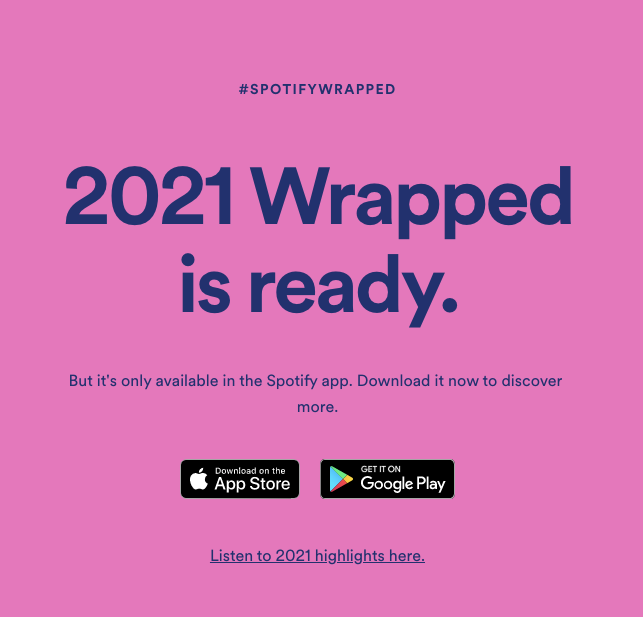It’s that time of year when holiday songs invade every gap of your awareness, overly ambitious resolutions are made, far too much home food is consumed, and, of course, you and your friends size each other up with your Spotify Wrapped. Our capitalist ideals have already dug themselves deep into the roots of our holiday traditions, in the compulsive gift giving and millions of click-bait Christmas gift listicles that collectively surface for a month and then fade away into the nethers of the Internet. And recently, they’ve found themselves packaged up in the shape of fun cultural traditions, like the viral Spotify Wrapped.
Don’t get me wrong. I look forward to my Spotify Wrapped every year just like everyone else. It provides a fascinating look into your music habits and how they’ve evolved over the years, and I love the ability to take the data we create and surfacing interesting insights from them. We spend so much time in the digital sphere, we might as well take advantage of the meticulous record-keeping the metaverse provides for our own purposes.
However, Wrapped is just another neatly packaged corporate product designed to convince us to stay within our walled data moats by gift-wrapping what is ours in the first place. The part that’s often memed about is all the Apple Music users who miss out on this cultural phenomenon. Many even joke that they wouldn’t switch from Spotify because of wrapped, which is exactly what Spotify wants and is incentivized to do. It’s like how tech companies offer free snacks and massage chairs and increasingly ridiculous themed work socials for workers to stay near work longer. It’s a magic trick. Misdirection. “Marketing.” We’ve all developed data stockholm syndrome for our favorite consumer products.

even on the main product page it playfully nudges you to download the app to see what the buzz is about.
What if Spotify Wrapped was just “Your Year in Music Wrapped?” What if we had community-made “Wrapped” equivalents for every set of digital data you created? We need an interoperable digital universe, first. Currently, we have irregularly maintained APIs and neglected data exports. What does the future of data access look like?
This is the 92nd installment in my experiment of publishing raw, lightly edited mini-essays every day towards achieving 100 public pieces. Check out the rationale and the full list here.